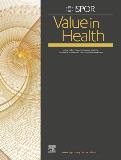
Real-world evidence on treatment outcomes can be an important aspect of the evidence basis for decision making if it is seen as credible. For real-world studies that are meant to test hypotheses about comparative-effectiveness or safety, a key aspect of credibility is that they are conducted transparently with tests that follow a prespecified analytic protocol. Preregistration of such study protocols on a public website would help build trust that their results can be used for decision-making purposes.
Establishing a Culture of Transparency for Real-World Evidence Studies...
The Real-World Evidence Transparency Initiative Partnership is a joint collaboration and ongoing effort between ISPOR, the International Society for Pharmacoepidemiology, the Duke-Margolis Center for Health Policy, and the National Pharmaceutical Council. The objective of this initiative is to establish a culture of transparency for study analysis and reporting of hypothesis evaluating real-world evidence studies on treatment effects.
Improving Transparency to Build Trust...
 The Real-World Evidence Transparency Initiative published a plan to encourage routine registration of noninterventional real-world evidence studies used to evaluate treatment effects. The report, “Improving Transparency to Build Trust in Real-World Secondary Data Studies for Hypothesis Testing—Why, What, and How: Recommendations and a Road Map from the Real-World Evidence Transparency Initiative,”
was published in the September 2020 issue of Value in Health.
The Real-World Evidence Transparency Initiative published a plan to encourage routine registration of noninterventional real-world evidence studies used to evaluate treatment effects. The report, “Improving Transparency to Build Trust in Real-World Secondary Data Studies for Hypothesis Testing—Why, What, and How: Recommendations and a Road Map from the Real-World Evidence Transparency Initiative,”
was published in the September 2020 issue of Value in Health.
More...
The report, “Improving Transparency to Build Trust in Real-World Secondary Data Studies for Hypothesis Testing—Why, What, and How: Recommendations and a Road Map from the Real-World Evidence Transparency Initiative,” was published in the September 2020 issue of Value in Health. The plan includes specifying the rationale for registering hypothesis-evaluating treatment effectiveness real-world evidence studies, the studies that should be registered, where and when these studies should be registered, how and when analytic deviations from protocols should be reported, how and when to publish results, and incentives to encourage registration.
Real-World Evidence Registry
The Real-World Evidence Registry provides researchers with a fit-for-purpose platform to register their study designs before they begin work to facilitate the transparency needed to elevate the trust in the study results.
More...
Real-world evidence studies can be used for hypothesis evaluation of treatment effects including safety (HETE studies). However these studies can also be perceived as less rigorous than clinical trials especially when not preregistered in a public setting such as ClinicalTrials.gov or the EU-PAS register.
ISPOR and its partners ISPE, NPC, and Duke Margolis have developed a simplified registration site especially for RWE HETE studies using secondary data. This searchable site provides a place for preregistration of studies that may not require registration for regulatory purposes but benefit from the rigor of transparent study methods and also provide a reference (such as a URL or doi) to share with peer reviewers, assessors, or other decision making bodies. Researchers can get started ‘here’ by creating a profile on the Open Sciences Framework and registering their study on the RWE Registry.
Shaking the Myth of Real-World Evidence
On-Demand Webinar
Learn more by watching the on-demand webinar, “Shaking the Myth of Real-World Evidence: Updates from the RWE Transparency Initiative.” This session provides updates from the initiative including a walk-through of the study registration site and updates on the special task force developing a standardized RWE protocol template.
Additional Resources
- Real-World Evidence Registry
 Good Practices Reports and Other ISPOR Reports from Value in Health
Good Practices Reports and Other ISPOR Reports from Value in Health
- HARmonized Protocol Template to Enhance Reproducibility of Hypothesis Evaluating Real-World Evidence Studies on Treatment Effects: A Good Practices Report of a Joint ISPE/ISPOR Task Force
- "Improving Transparency to Build Trust in Real-World Secondary Data Studies for Hypothesis Testing—Why, What, and How: Recommendations and a Road Map from the Real-World Evidence Transparency Initiative"
- "Good Practices for Real-World Data Studies of Treatment and/or Comparative Effectiveness"
- "Reporting to Improve Reproducibility and Facilitate Validity Assessment for Healthcare Database Studies V1.0"
- "Unlocking the Promise of Real-World Evidence" (Value & Outcomes Spotlight, Vol. 6, No. 5)
- ISPOR's Real-World Evidence Strategic Initiatives
Conferences & Summits

May 13, 2025
<h4>Explore the role of real-world evidence (RWE) in supporting the economic evaluation of cell and gene therapies (CGTs)<br /><strong></strong></h4><div><p>Explore the role of real-world evidence (RWE) in supporting the economic evaluation of cell and gene therapies (CGTs), which are often one-time treatments with the potential for transformative, long-term benefits for patients with severe conditions. Despite their promise, uncertainty in the evidence base, due to small, single-arm trials and unclear long-term effectiveness, creates challenges for payer reimbursement and policy decisions.</p><p>Technical Topics Include:</p><ul><li>Challenges in evaluating CGTs:<ul><li>Small patient populations and single-arm trial limitations</li><li>Uncertainty in patient eligibility and standard of care definitions</li><li>Durability of benefit and long-term effectiveness concerns</li></ul></li><li>Payer concerns and economic challenges:<ul><li>High up-front costs and affordability issues</li><li>Balancing relative effectiveness, cost-effectiveness, and budget impact</li></ul></li><li>The role of RWE in addressing uncertainties:<ul><li>Informing eligibility criteria and appropriate comparators</li><li>Assessing long-term outcomes and treatment durability</li><li>Supporting outcome-based agreements and value-based pricing</li></ul></li><li>Internal and external validity of RWE: Strengthening payer confidence in decision-making</li><li>Case studies: Real-world applications of RWE in policy and payment decisions for CGTs</li></ul><p>This Course Includes Tools and Concepts That Can Be Immediately Applied, Including:</p><ul><li>Frameworks for integrating RWE into payer decision-making for CGTs</li><li>Best practices for addressing payer concerns related to CGT affordability and reimbursement</li><li>Strategies for developing outcome-based agreements based on real-world data</li><li>Case-based discussions on using RWE to balance access and payment considerations</li></ul><p>This course is designed for medical operations, HEOR professionals, and policymakers looking to gain a deeper understanding of how RWE can inform economic evaluations, reimbursement strategies, and payment models for CGTs.</p><p><strong fontscheme="2">PREREQUISITE: </strong>This course requires familiarity with basic economic evaluation and HTA concepts and methodologies of pharmaceuticals.</p><div><p> </p></div></div><p><em fontscheme="2"></em><strong>LEVEL:</strong> Intermediate<strong><br />TRACK:</strong> Real World Data & Information Systems<br /><br />This short course is offered in-person at the ISPOR 2025 conference. Separate registration is required. <a href="/conferences-education/conferences/past-conferences/ispor-2025">Visit the ISPOR 2025 Program page to register</a> and learn more.<strong><strong></strong></strong></p><p><strong style="background-color:transparent;color:inherit;font-size:inherit;text-align:inherit;text-transform:inherit;word-spacing:normal;caret-color:auto;white-space:inherit;">FACULTY MEMBERS</strong></p><div><strong></strong></div><div><strong></strong></div><div><strong></strong></div><div><strong></strong></div><div><strong>Daniel Gladwell, PhD</strong></div><div>Chief Scientific Officer, HEOR</div><div>Lumanity</div><div>Sheffield, England, UK</div><div><br /></div><div><strong>Brett McQueen, PhD</strong></div><div>Associate Professor</div><div>University of Colorado</div><div>Aurora, CO, USA</div><div><br /></div><div><strong>Oriol Solà-Morales, MD, MSc, PhD</strong></div><div>Chair Fundació HiTT</div><div>Health Innovation Technology Transfer (HiTT)</div><div>Barcelona, Spain</div><div><br /></div><div><strong>Marina Richardson, MSc, PhD (TBD)</strong></div><div>Associate Director, HTA Methods and Health Economics</div><div>ICER</div><div>Boston, MA, USA</div><div></div><div></div><div></div><div><p> </p><p><strong style="background-color:transparent;color:inherit;font-size:inherit;text-align:inherit;text-transform:inherit;word-spacing:normal;caret-color:auto;white-space:inherit;">Schedule:</strong></p></div><div><p><strong>LENGTH: </strong>4<strong> </strong>Hours | Course runs 1 day</p><p><strong>Tuesday, 13 May 2025 | Course runs 1 Day<br /></strong>1:00pm-5:00pm Eastern Daylight Time (EDT)<strong style="background-color:transparent;color:inherit;font-size:inherit;text-align:inherit;text-transform:inherit;word-spacing:normal;caret-color:auto;white-space:inherit;"></strong></p></div><p><strong><em>ISPOR short courses are designed to enhance knowledge and techniques in core health economics and outcomes research (HEOR) topics as well as emerging trends in the field. Short courses offer 4 or 8 hours of premium scientific education and an electronic course book. Active attendee participation combined with our expert faculty creates an immersive and impactful learning experience. Short courses are not recorded and are only available during the live course presentation.</em></strong></p>)
Short Courses & Webinars

May 13, 2025
<h4>Explore the role of real-world evidence (RWE) in supporting the economic evaluation of cell and gene therapies (CGTs)<br /><strong></strong></h4><div><p>Explore the role of real-world evidence (RWE) in supporting the economic evaluation of cell and gene therapies (CGTs), which are often one-time treatments with the potential for transformative, long-term benefits for patients with severe conditions. Despite their promise, uncertainty in the evidence base, due to small, single-arm trials and unclear long-term effectiveness, creates challenges for payer reimbursement and policy decisions.</p><p>Technical Topics Include:</p><ul><li>Challenges in evaluating CGTs:<ul><li>Small patient populations and single-arm trial limitations</li><li>Uncertainty in patient eligibility and standard of care definitions</li><li>Durability of benefit and long-term effectiveness concerns</li></ul></li><li>Payer concerns and economic challenges:<ul><li>High up-front costs and affordability issues</li><li>Balancing relative effectiveness, cost-effectiveness, and budget impact</li></ul></li><li>The role of RWE in addressing uncertainties:<ul><li>Informing eligibility criteria and appropriate comparators</li><li>Assessing long-term outcomes and treatment durability</li><li>Supporting outcome-based agreements and value-based pricing</li></ul></li><li>Internal and external validity of RWE: Strengthening payer confidence in decision-making</li><li>Case studies: Real-world applications of RWE in policy and payment decisions for CGTs</li></ul><p>This Course Includes Tools and Concepts That Can Be Immediately Applied, Including:</p><ul><li>Frameworks for integrating RWE into payer decision-making for CGTs</li><li>Best practices for addressing payer concerns related to CGT affordability and reimbursement</li><li>Strategies for developing outcome-based agreements based on real-world data</li><li>Case-based discussions on using RWE to balance access and payment considerations</li></ul><p>This course is designed for medical operations, HEOR professionals, and policymakers looking to gain a deeper understanding of how RWE can inform economic evaluations, reimbursement strategies, and payment models for CGTs.</p><p><strong fontscheme="2">PREREQUISITE: </strong>This course requires familiarity with basic economic evaluation and HTA concepts and methodologies of pharmaceuticals.</p><div><p> </p></div></div><p><em fontscheme="2"></em><strong>LEVEL:</strong> Intermediate<strong><br />TRACK:</strong> Real World Data & Information Systems<br /><br />This short course is offered in-person at the ISPOR 2025 conference. Separate registration is required. <a href="/conferences-education/conferences/past-conferences/ispor-2025">Visit the ISPOR 2025 Program page to register</a> and learn more.<strong><strong></strong></strong></p><p><strong style="background-color:transparent;color:inherit;font-size:inherit;text-align:inherit;text-transform:inherit;word-spacing:normal;caret-color:auto;white-space:inherit;">FACULTY MEMBERS</strong></p><div><strong></strong></div><div><strong></strong></div><div><strong></strong></div><div><strong></strong></div><div><strong>Daniel Gladwell, PhD</strong></div><div>Chief Scientific Officer, HEOR</div><div>Lumanity</div><div>Sheffield, England, UK</div><div><br /></div><div><strong>Brett McQueen, PhD</strong></div><div>Associate Professor</div><div>University of Colorado</div><div>Aurora, CO, USA</div><div><br /></div><div><strong>Oriol Solà-Morales, MD, MSc, PhD</strong></div><div>Chair Fundació HiTT</div><div>Health Innovation Technology Transfer (HiTT)</div><div>Barcelona, Spain</div><div><br /></div><div><strong>Marina Richardson, MSc, PhD (TBD)</strong></div><div>Associate Director, HTA Methods and Health Economics</div><div>ICER</div><div>Boston, MA, USA</div><div></div><div></div><div></div><div><p> </p><p><strong style="background-color:transparent;color:inherit;font-size:inherit;text-align:inherit;text-transform:inherit;word-spacing:normal;caret-color:auto;white-space:inherit;">Schedule:</strong></p></div><div><p><strong>LENGTH: </strong>4<strong> </strong>Hours | Course runs 1 day</p><p><strong>Tuesday, 13 May 2025 | Course runs 1 Day<br /></strong>1:00pm-5:00pm Eastern Daylight Time (EDT)<strong style="background-color:transparent;color:inherit;font-size:inherit;text-align:inherit;text-transform:inherit;word-spacing:normal;caret-color:auto;white-space:inherit;"></strong></p></div><p><strong><em>ISPOR short courses are designed to enhance knowledge and techniques in core health economics and outcomes research (HEOR) topics as well as emerging trends in the field. Short courses offer 4 or 8 hours of premium scientific education and an electronic course book. Active attendee participation combined with our expert faculty creates an immersive and impactful learning experience. Short courses are not recorded and are only available during the live course presentation.</em></strong></p>)




